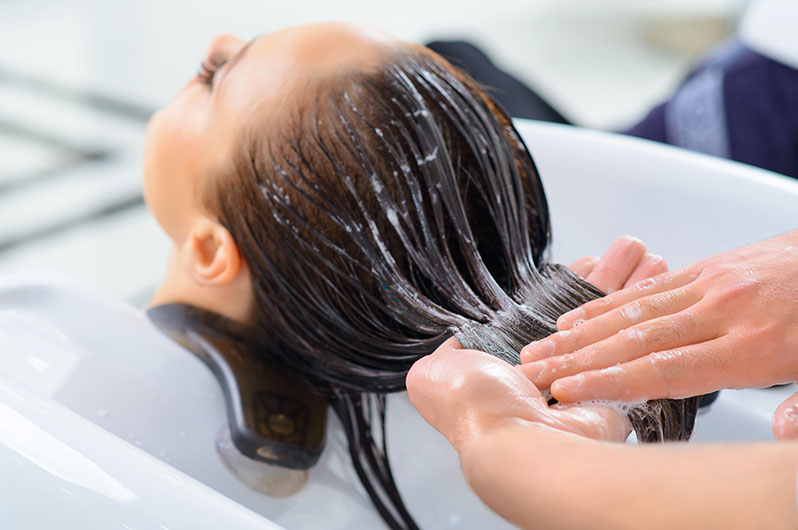About This Post
Introduction: The Cape Town Curly Hair Struggle
You wake up, look in the mirror, and there it is again – that familiar feeling of defeat. Your curls are dry, frizzy, and somehow manage to look both limp and unruly at the same time. Sound familiar?
If you’ve got curly hair in Cape Town, you’re fighting a daily battle that straight-haired folks just don’t understand. The relentless southeaster winds whip moisture right out of your curls. The intense UV rays beat down mercilessly (we get some of the strongest sun in the world here). Then there’s the humidity that changes faster than a taxi’s route during rush hour.
You’ve probably tried everything… expensive salon treatments that promise miracles, following every curly hair guru on Instagram, switching products more often than the weather changes. But here’s the thing – most advice online isn’t written for our unique South African climate. What works in London’s gentle drizzle or New York’s predictable seasons often falls flat in Cape Town’s dramatic weather swings.
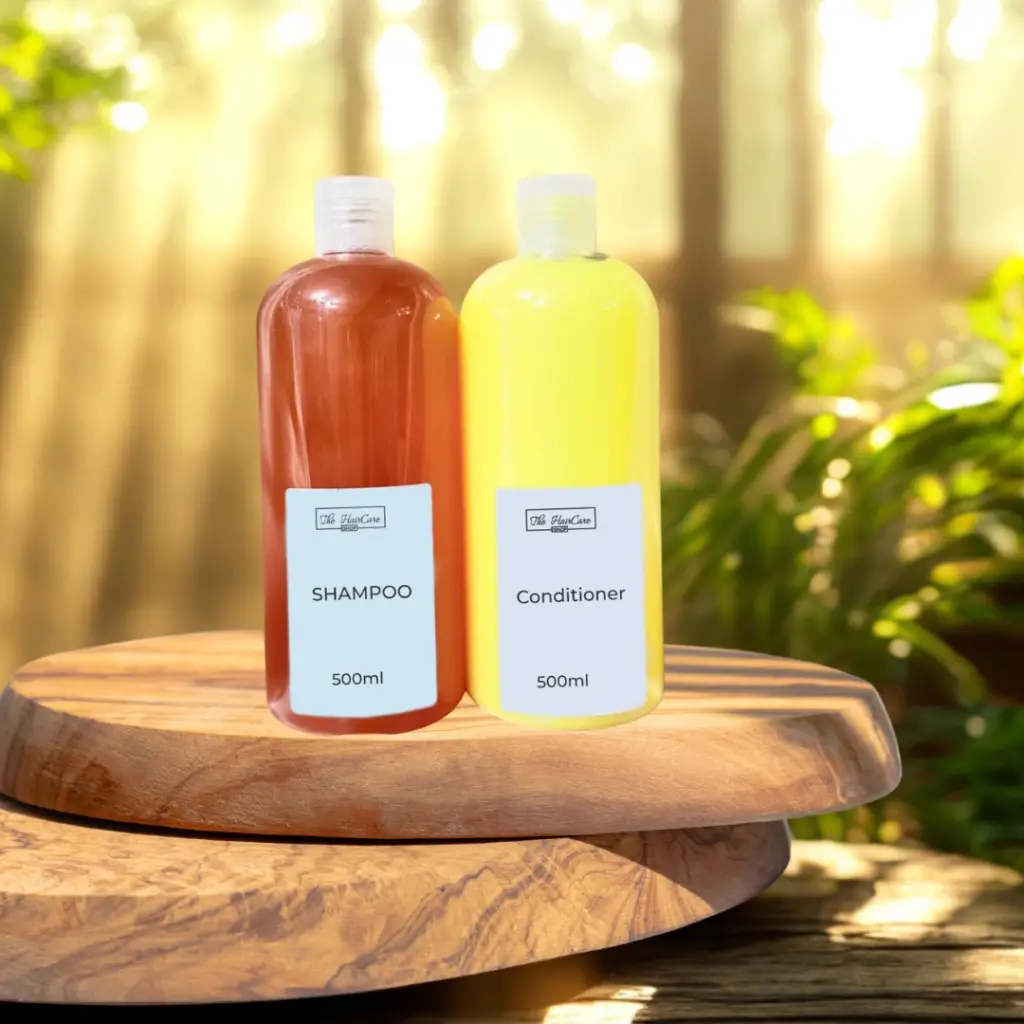
The frustration is real. You see gorgeous curls on social media and wonder why yours can’t look like that. You avoid windy days (which in Cape Town means avoiding most days). You’ve probably even considered just straightening it all and giving up on your natural texture.
But what if I told you the solution isn’t about fighting your curls – it’s about choosing the right shampoo and conditioner combination that actually works with Cape Town’s climate? What if the secret isn’t in expensive treatments, but in understanding exactly what your hair needs to thrive in our Mother City conditions?
Let’s dive deep into the science of curly hair care in Cape Town, and I’ll show you exactly which products will transform your curly hair routine from a daily struggle into something you actually look forward to.
Why Cape Town’s Climate Is Particularly Challenging for Curly Hair
Living in Cape Town means your hair faces a perfect storm of environmental stressors that most curly hair advice simply doesn’t account for. Our climate isn’t just harsh – it’s uniquely complicated.
First, there’s our infamous wind. The southeaster doesn’t just mess up your hairstyle; it literally strips moisture from your hair shafts. Curly hair is already more porous than straight hair (imagine trying to hold water in a twisted straw versus a smooth one), and our winds act like a giant blow dryer on the city. I’ve watched people step out of air-conditioned malls looking perfectly put-together, only to look like they’ve been in a wind tunnel within minutes.
Then we have the sun. Cape Town sits at roughly the same latitude as Los Angeles, but with significantly less air pollution to filter UV rays. Our ozone layer is thinner here too, meaning those UV rays hit harder. For curly hair, this means protein damage, color fading, and the breakdown of your hair’s natural moisture barrier. It’s like leaving a delicate fabric in direct sunlight – over time, it becomes brittle and loses its structure.
But here’s where it gets really tricky: our humidity levels are all over the place. Summer mornings can be humid, then bone dry by afternoon. Winter brings different challenges – cold, dry air that makes your curls shrink up and lose definition. Your hair is constantly trying to adapt, which leads to that unpredictable, frizzy mess that changes throughout the day.
The seasonal shifts don’t help either. Unlike places with gradual climate changes, Cape Town can swing from 35°C summer days to 8°C winter nights. Your hair care routine that works perfectly in February might leave you looking like you’ve been electrocuted by June.
Understanding these challenges is the first step. Once you know what you’re up against, choosing the right shampoo and conditioner becomes much clearer. You need products that can handle moisture loss, UV damage, and rapid environmental changes – not just generic “curly hair” formulas.
Understanding Your Curly Hair Type and Specific Needs
Before we dive into specific products, let’s get real about your hair. Not all curls are created equal, and Cape Town’s climate affects different curl types in different ways.
The curl pattern system (2A through 4C) is helpful, but what matters more for product selection is your hair’s porosity – basically, how easily your hair absorbs and loses moisture. This is huge in Cape Town because our environment is constantly trying to steal your hair’s hydration.
Low porosity hair feels smooth and takes forever to get wet in the shower. If this is you, Cape Town’s dry conditions might actually work in your favor sometimes – less humidity means less frizz. But when the wind hits, you’ll struggle to get moisture back in. You need lightweight, penetrating ingredients that can actually get through your hair’s protective layer.
High porosity hair drinks up moisture like a sponge but loses it just as quickly. This is the hair type that probably drives you crazy in Cape Town – it looks great right after washing, then turns into a frizzy mess the moment you step outside. The wind and sun damage has likely made your cuticles raised and rough. You need heavier, sealing ingredients to lock moisture in.
Medium porosity hair is the goldilocks zone – it takes in moisture reasonably well and holds onto it decently. But even “normal” porosity curls get beaten up by our climate over time.
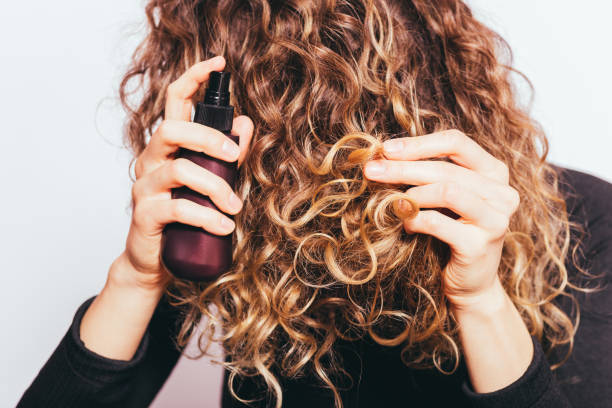
Here’s a simple test: drop a clean strand of your hair in a glass of water. Low porosity floats, high porosity sinks quickly, medium porosity sinks slowly. This tells you whether you need lightweight moisture that penetrates, or heavier creams that seal and protect.
Your curl pattern matters too, but differently than you might think. Tighter curls (3C and 4 patterns) naturally have more weak points where the hair bends, making them more vulnerable to Cape Town’s harsh conditions. Looser curls (2B, 3A) might seem easier to manage, but they often lack the natural oils that protect tighter textures.
The key insight? Your hair’s needs change with Cape Town’s conditions. Summer might require lighter products to prevent weighing down your curls, while winter calls for heavier moisture. The best shampoo and conditioner routine adapts to both your hair type and our city’s moods.
The Science Behind Sulfate-Free Formulations for Curly Hair
Let’s talk about sulfates – those cleaning agents that make your shampoo foam up like a bubble bath. For curly hair in Cape Town, sulfates are basically the enemy, and here’s why the science backs this up.
Sulfates (like sodium lauryl sulfate and sodium laureth sulfate) are incredibly effective cleaners. They strip away everything – oil, dirt, product buildup, and unfortunately, your hair’s natural protective barrier. Think of them as industrial-strength degreasers. Great for dishes, not so great for hair that’s already struggling with moisture retention.
Curly hair produces less natural oil (sebum) than straight hair because the oils have a harder time traveling down twisted hair shafts. It’s like trying to pour honey down a corkscrew versus a straight tube. When you add sulfates to already oil-deficient hair, you’re essentially stripping away the little natural protection your curls have.
In Cape Town’s environment, this becomes a disaster. Your hair needs every bit of natural protection it can get against UV rays, wind, and humidity changes. Sulfates leave your hair cuticles raised and roughened – imagine tiny shingles on a roof that are all lifted up. This makes your hair more porous, which means it loses moisture faster and becomes more vulnerable to environmental damage.
Sulfate-free shampoos use gentler cleaning agents like coco-glucoside, decyl glucoside, or sodium cocoyl isethionate. These ingredients clean effectively without stripping your hair’s natural oils. They’re derived from coconut oil and other plant sources, and they work more like a gentle soap than a harsh detergent.
The result? Your hair retains more of its natural moisture and protection. The cuticles lie flatter, which means better light reflection (hello, shine!) and less frizz. Your color lasts longer if you have chemically treated hair, and your curls maintain their shape better between washes.
But here’s something many people don’t realize – switching to sulfate-free isn’t always an instant fix. Your hair might feel different at first, sometimes even a bit heavier or less “squeaky clean.” That’s because you’re used to the stripped feeling that sulfates create. Give it a few weeks for your scalp to adjust its oil production and for your hair to regain its natural balance.
For Cape Town curly hair, sulfate-free formulations are non-negotiable. They’re the foundation of healthy curls that can actually withstand our climate challenges.
Top Shampoo Ingredients to Look for in Cape Town’s Climate
When you’re standing in the hair care aisle (or browsing online at Haircare Shop), knowing which ingredients actually work for Cape Town conditions makes all the difference. Let me break down the ingredients that’ll become your curly hair’s best friends.
Hydrating Heroes: Hyaluronic acid isn’t just for skincare – it can hold up to 1,000 times its weight in water. In shampoos, it helps your hair retain moisture even when the southeaster is doing its worst. Glycerin is another moisture magnet, but it needs to be balanced properly (more on that later).
Aloe vera is brilliant for Cape Town hair because it provides moisture without heaviness, plus it has natural UV-protective properties. Given our intense sun exposure, this dual action is perfect. Natural oils like argan, jojoba, and coconut oil in shampoo formulations help maintain your hair’s lipid barrier – that protective coating that keeps moisture in and damage out.
UV Protection: Look for ingredients like zinc oxide, titanium dioxide, or chemical UV filters. Some shampoos include these, though they’re more common in leave-in products. However, ingredients like vitamin E, green tea extract, and various antioxidants help repair UV damage and prevent future harm.

Anti-Frizz Components: Silk proteins fill in the gaps in damaged hair cuticles, creating smoother surfaces that reflect light better and resist humidity. Keratin-based ingredients help rebuild your hair’s structure, though be careful with these if you have fine curls as they can be too heavy.
Gentle Cleansers: We’ve covered why sulfate-free matters, but specifically look for cocamidopropyl betaine, sodium cocoyl glutamate, or coco-glucoside. These clean effectively while being gentle enough for frequent use if needed.
Ingredients to Avoid: Drying alcohols (denatured alcohol, isopropyl alcohol) are disasters for curly hair in dry climates. They’ll leave your hair feeling like straw. Also watch out for harsh preservatives like formaldehyde-releasers, which can cause scalp irritation and further dryness.
One ingredient that’s particularly relevant for Cape Town – rooibos extract. This South African superfood isn’t just good in tea; it’s packed with antioxidants and minerals that help protect hair from environmental stress. The Rooibos Shampoo available locally incorporates this perfectly suited ingredient.
The key is finding shampoos that combine multiple beneficial ingredients rather than relying on one “miracle” component. Your Cape Town curls need a comprehensive approach to tackle our unique environmental challenges.
Essential Conditioner Features for Dry, Curly Hair
If shampoo is the opening act, conditioner is the headliner for curly hair care. In Cape Town’s challenging climate, your conditioner needs to work overtime, and not all conditioners are up to the task.
Deep Moisturizing Agents: Your conditioner should be packed with humectants and emollients that can penetrate the hair shaft and seal the cuticle. Look for ingredients like shea butter, murumuru butter, and various plant oils. These don’t just sit on your hair’s surface – they actually improve your hair’s ability to retain moisture long-term.
Panthenol (Pro-Vitamin B5) is a game-changer because it penetrates the hair shaft and helps retain moisture from the inside out. It also adds flexibility to your curls, which means less breakage when Cape Town’s winds try to whip your hair around.
The Slip Factor: “Slip” refers to how easily your fingers can glide through wet, conditioned hair. This is crucial for curly hair because you need to be able to detangle without causing breakage. Ingredients like behentrimonium methosulfate, cetyl alcohol, and stearyl alcohol provide excellent slip while also conditioning the hair.
Good slip means you can gently work through knots and distribute the conditioner evenly through your curls. Poor slip leads to tugging, breakage, and uneven conditioning – which shows up as frizzy, damaged sections later.
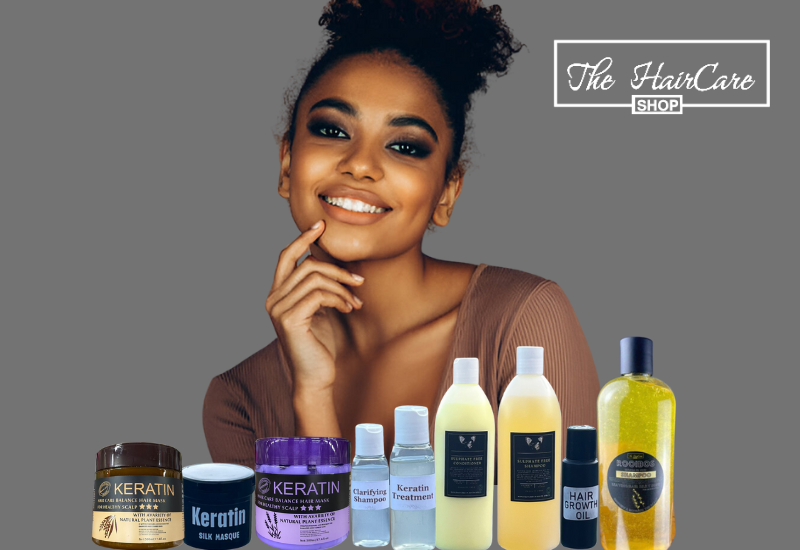
Protein Balance: This is where it gets tricky. Curly hair needs protein to maintain its structure, especially when it’s being damaged by UV rays and environmental stress. However, too much protein can make your hair stiff and prone to breakage. The key is finding conditioners that provide protein in smaller amounts or use gentler protein sources.
Hydrolyzed proteins (like hydrolyzed wheat protein or silk protein) are small enough to penetrate the hair shaft and help rebuild damaged areas. Rice protein and quinoa protein are gentler options that provide structure without overwhelming fine curls.
pH Balance: Your hair’s natural pH is slightly acidic (around 4.5-5.5). Cape Town’s hard water and environmental stressors can throw this balance off, leading to raised cuticles and frizz. Look for conditioners that specifically mention being pH-balanced or slightly acidic.
Leave-In vs. Rinse-Out: In Cape Town, you’ll probably need both. A good rinse-out conditioner provides deep conditioning and detangling. A leave-in conditioner gives ongoing protection against UV rays, wind, and humidity changes throughout the day.
The Rooibos Sulphate-Free Conditioner exemplifies many of these principles, combining local botanicals with proven conditioning agents that work specifically well in our climate.
Remember, the best conditioner for Cape Town curly hair isn’t necessarily the most expensive one – it’s the one that addresses your specific porosity level while providing protection against our unique environmental challenges.
Product Recommendations: Best Shampoos for Cape Town Curly Hair
Now let’s get specific. After understanding the science, here are the shampoo recommendations that actually work for curly hair in Cape Town’s challenging climate.
For All Curl Types: The Watermelon Sulphate-Free Shampoo & Conditioner Set is an excellent starting point. Watermelon extract is naturally rich in amino acids and vitamins A and C – perfect for repairing UV damage that’s inevitable in Cape Town. The sulfate-free formula means you’re not stripping your hair’s natural oils, while the watermelon provides gentle hydration without weighing down your curls.
For Low Porosity Curls: Low porosity hair in Cape Town needs lightweight moisture that can actually penetrate the hair shaft. The Rooibos Shampoo is particularly brilliant for this hair type. Rooibos is uniquely suited to South African conditions – it’s rich in minerals like calcium, iron, and zinc, plus antioxidants that help protect against our intense UV exposure.
What makes this especially good for low porosity hair is that rooibos extract has small molecular components that can penetrate resistant cuticles. Plus, it’s naturally caffeine-free and gentle, so you can use it frequently without over-drying – important when Cape Town’s wind makes you want to wash more often.
For High Porosity Curls: High porosity hair needs shampoos that clean while beginning the sealing process. Look for formulations that include heavier oils and proteins. The key is finding products that don’t over-moisturize at the shampoo stage (save that for conditioning) but do provide some protection to prevent further cuticle damage.
Application Tips for Cape Town Conditions:
- Pre-poo treatment: Before shampooing, apply a light oil to your hair. This creates a barrier that prevents even sulfate-free shampoos from being too drying. Argan oil or jojoba work beautifully and won’t clog your scalp pores.
- Focus on your scalp: In Cape Town’s dusty, windy conditions, your scalp needs the most attention. Massage the shampoo into your scalp and let it clean your lengths gently as you rinse.
- Frequency matters: Don’t over-shampoo. In winter, you might only need to shampoo once a week. Summer might require twice weekly washing due to sweat and sunscreen buildup. Listen to your hair – if it feels stripped and tangled after washing, you’re either using the wrong product or washing too frequently.
- Water temperature: Cape Town’s hard water is already challenging for curls. Don’t make it worse with hot water, which opens cuticles and allows more minerals to deposit. Use lukewarm water for washing, cool water for final rinses.
The goal isn’t to find one perfect shampoo and stick with it forever. Cape Town’s seasonal changes mean you might need to rotate between two formulations – lighter for humid summer months, more moisturizing for dry winter periods.
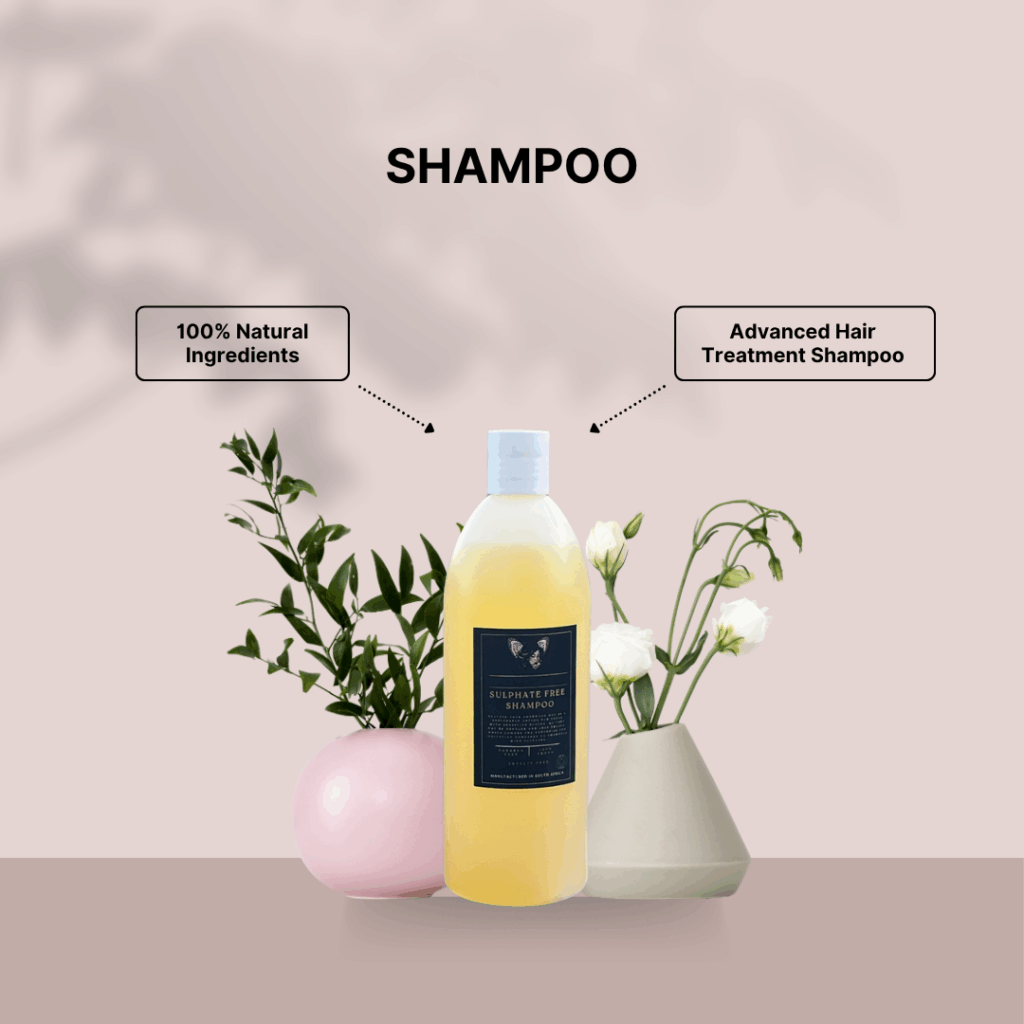
Product Recommendations: Top Conditioners for Maximum Moisture
Your conditioner choice can make or break your curly hair routine, especially in Cape Town where environmental stressors demand serious moisture retention. Here’s what actually works.
Deep Conditioning Powerhouse: The Rooibos Sulphate-Free Conditioner pairs perfectly with its shampoo counterpart, but it’s worth highlighting separately. This conditioner combines the antioxidant power of rooibos with conditioning agents that work specifically well in our climate.
What sets this apart is the ingredient profile – rooibos provides minerals that actually strengthen hair structure while delivering moisture. For Cape Town conditions, this dual action is perfect. The minerals help repair environmental damage while the conditioning base provides the slip and moisture your curls desperately need.
For Different Porosity Levels: Low porosity hair should use conditioner differently than high porosity hair, especially in our climate. If you have low porosity curls, apply conditioner to soaking wet hair and use a wide-tooth comb to distribute evenly. The water helps open your cuticles slightly, allowing the conditioner to penetrate better.
High porosity hair needs conditioner applied to towel-dried hair (not soaking wet) and should focus on sealing ingredients. Leave the conditioner on longer – 10-15 minutes if possible – to allow maximum penetration and sealing.
The Co-Washing Option: In Cape Town’s dry climate, many curly-haired people find success with co-washing (washing with conditioner only) between regular shampoo sessions. This works particularly well in winter when you’re not dealing with as much sweat or sunscreen buildup.
For co-washing, you need a conditioner with some mild cleansing properties. The Watermelon Sulphate-Free set works well for this because the conditioner is substantial enough to remove light buildup while providing moisture.
Application Techniques for Cape Town Hair:
- Sectioning is everything: Divide your hair into 4-6 sections when applying conditioner. Our wind and sun damage is rarely even across your whole head – some sections will be more damaged and need more attention.
- Praying hands method: Apply conditioner using the “praying hands” technique – smooth it down your hair lengths rather than scrunching it in. This helps seal the cuticles and reduces frizz.
- Don’t rinse completely: In Cape Town’s low humidity, leaving a tiny bit of conditioner in your hair can provide ongoing protection. Not enough to make your hair greasy, but just enough to maintain moisture throughout the day.
Weekly Deep Conditioning: Cape Town curls need weekly deep conditioning treatments, period. Your regular conditioner is for daily/frequent use, but once a week, you need something more intensive. Look for treatments with ceramides, fatty acids, and protein complexes that can repair cumulative environmental damage.
The key to success with conditioners in Cape Town is understanding that your hair’s needs will change with the seasons, your hair’s condition, and even daily weather patterns. Having two different conditioners – one for regular use and one for intensive treatment – gives you the flexibility to respond to what your curls need.
Creating Your Cape Town Curly Hair Care Routine
Building a routine that works with Cape Town’s climate (and your real life) is about consistency with flexibility. Your routine needs to be sustainable – something you can actually stick to when the southeaster is howling and you’re running late for work.
The Foundation Routine: Start with washing 1-2 times per week maximum. Cape Town’s hard water and our climate mean frequent washing will damage your curls faster than help them. Choose your wash days based on your schedule and the weather forecast. Washing before a windy day means your clean curls will get beaten up immediately.
Here’s your basic wash day process:
- Pre-poo with light oil if your hair feels particularly dry
- Shampoo focusing on scalp, using products like the Rooibos Shampoo for gentle cleansing
- Condition generously, detangle gently, rinse partially
- Apply leave-in treatment while hair is still soaking wet
- Style using curl-friendly techniques
Between-Wash Maintenance: This is where Cape Town curly hair routines differ from advice designed for other climates. You’ll need to refresh your curls every 1-2 days because our wind and low humidity flatten and frizz curls quickly.
Create a refresh spray: Mix water with a tiny amount of leave-in conditioner and a few drops of oil. Spray this on day-two curls, scrunch gently, and let air dry. Never brush or comb dry curly hair – this is a recipe for frizz and breakage.
Nighttime Protection: Cape Town’s dry air continues working against your curls while you sleep. Sleep on a silk or satin pillowcase, or wrap your hair in a silk scarf. This reduces friction and helps maintain moisture overnight.
Consider “plopping” – wrapping freshly washed curls in a cotton t-shirt instead of a towel. Towels create frizz and absorb too much moisture. Plop for 15-30 minutes to remove excess water without disturbing your curl pattern.
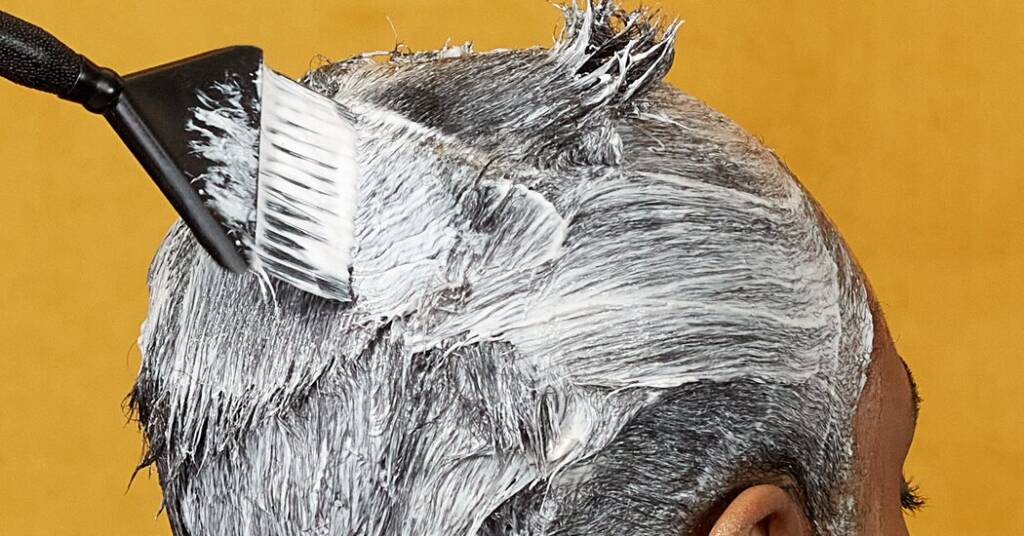
Seasonal Adjustments: Summer routine modifications:
- Lighter products to prevent weighing down your curls in humidity
- More frequent cleansing due to sweat and sunscreen
- UV protection becomes critical – look for leave-in products with SPF
- Less heavy oils, more lightweight hydration
Winter routine modifications:
- Heavier moisturizing products to combat dry air
- Less frequent washing as you sweat less
- More intensive deep conditioning treatments
- Protective styling on particularly windy days
Product Rotation: Don’t use the same products year-round. Your hair’s needs change with Cape Town’s dramatic seasonal shifts. Keep a “summer set” and “winter set” of products. The Watermelon Sulphate-Free Shampoo & Conditioner Set works beautifully for transitional seasons.
Time-Saving Tips:
- Prep on Sunday: Deep condition, detangle, and set your curls for the week ahead
- Invest in good products: Quality sulfate-free formulations last longer and work better than constantly switching between cheaper alternatives
- Learn your hair: Track what works on different days – windy days might need different styling than calm days
Remember, the goal isn’t perfect curls every single day. Cape Town weather makes that impossible. The goal is healthy hair that looks good most of the time and can bounce back quickly from environmental damage.
Common Mistakes That Make Dry Curly Hair Worse
Let’s talk about the mistakes that are sabotaging your curly hair progress – especially the ones that seem logical but actually make Cape Town’s climate challenges worse.
Over-Washing: This is the big one. I get it – Cape Town is dusty, windy, and in summer you’re dealing with sweat and sunscreen. It feels logical to wash more frequently. But over-washing strips your hair of natural oils faster than your scalp can replace them, especially when you’re already fighting our dry climate.
Signs you’re over-washing: Your hair feels squeaky clean after shampooing (not a good thing), your scalp gets oily quickly after washing (overcompensating for stripped oils), and your curls feel dry and tangled even right after conditioning.
Using Products with Drying Alcohols: Ingredient lists matter, especially in our climate. Alcohols like denatured alcohol, isopropyl alcohol, and ethanol are frequently used in styling products because they dry quickly. In Cape Town’s already dry air, these ingredients will leave your hair feeling like straw.
However, don’t avoid ALL alcohols – fatty alcohols like cetyl alcohol and stearyl alcohol are actually beneficial conditioning agents. Learn to read labels and distinguish between the good and bad alcohols.
Brushing Dry Hair: Never, ever brush curly hair when it’s dry, especially in Cape Town where environmental damage makes hair more fragile. Brushing breaks up your curl clumps, creates frizz, and can cause significant breakage. Only detangle with a wide-tooth comb on wet, conditioned hair.

Heat Damage: Our intense sun is already providing more heat than your hair can handle. Adding blow dryers, flat irons, or curling irons on top of UV damage is asking for disaster. If you must use heat, always use a heat protectant and keep temperatures low.
Air drying might take longer, but it’s infinitely better for Cape Town curls. Our low humidity actually helps with drying time compared to more humid climates.
Wrong Product Application: Applying products to dripping wet hair seems logical, but it can dilute your products too much, especially in our low-humidity environment. Your hair should be very damp but not soaking when you apply styling products.
Also, many people apply too little conditioner. Curly hair needs more conditioner than you think, especially when it’s been damaged by environmental stressors. Don’t be stingy.
Ignoring Porosity Changes: Your hair’s porosity isn’t fixed – Cape Town’s sun, wind, and hard water gradually increase porosity over time. Products that worked when you first moved here might not work anymore. Pay attention to how your hair responds and adjust accordingly.
Skipping Protein Treatments: Environmental damage breaks down your hair’s protein structure. Ignoring this and only focusing on moisture leads to weak, limp curls that can’t hold their shape. Include gentle protein treatments monthly, more often if your hair is severely damaged.
Using Too Much Product: Cape Town’s low humidity means products don’t absorb into your hair the same way they would in more humid climates. Start with less product than recommended and build up slowly. Too much product in our dry climate leads to crunchy, weighed-down curls.
The key is understanding that curly hair care advice designed for other climates often doesn’t translate directly to Cape Town conditions. Trust your hair over generic advice, and don’t be afraid to adjust techniques based on what actually works in our unique environment.
Seasonal Adjustments: Summer vs Winter Hair Care in Cape Town
Cape Town’s dramatic seasonal swings mean your curly hair routine can’t be static. What works perfectly in February might leave you looking like a tumbleweed by July. Here’s how to adapt your routine to work with our city’s seasonal personality changes.
Summer Challenges and Solutions (October-March): Summer in Cape Town brings intense UV, low humidity, and that relentless southeaster. Your curls are under constant attack from multiple angles.
UV protection becomes non-negotiable. The sun damage happens gradually, so you might not notice until your curls start losing definition and elasticity. Look for leave-in products with UV filters, or wear protective hairstyles on beach days. The antioxidants in products like the Rooibos range provide some natural UV protection, but they’re not substitutes for physical protection on high-exposure days.
Lighten your product routine in summer. The combination of heat and humidity (yes, we do get humid days) means heavy creams can make your hair limp and greasy. Switch to lighter leave-in conditioners and avoid heavy oils during the day.
Rinse more frequently. You don’t need to shampoo more, but rinsing with cool water can remove salt, chlorine, and sunscreen buildup while refreshing your curls. This is particularly important if you’re spending time at our beautiful beaches.
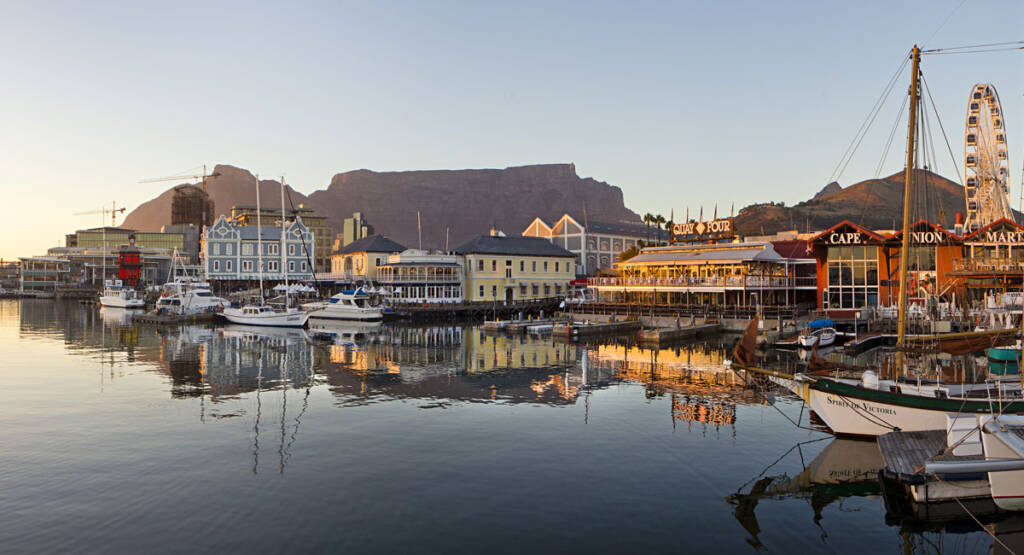
Winter Adaptations (May-August): Winter brings different challenges – cold, dry air that makes curls shrink up and lose moisture rapidly. Many people find their curl pattern temporarily changes in winter, becoming tighter and more prone to breakage.
Increase your moisturizing routine. Switch to heavier conditioners and don’t be afraid of oils. Your hair needs more intensive moisture when our humidity drops to desert levels. Deep condition weekly, minimum.
Protect from wind damage. Cape Town’s winter winds can be just as damaging as summer’s heat. Protective styles become more important – loose braids, twists, or even just keeping your hair under a scarf on particularly windy days.
Be gentler with wet hair. Cold weather makes hair more brittle, so extra care during detangling is crucial. Use more conditioner, take more time, and consider doing deep conditioning treatments before detangling.
Transition Periods: Spring and autumn in Cape Town can be tricky because the weather changes daily. One day you need summer products, the next day winter ones. This is where having versatile products like the Watermelon Sulphate-Free Set becomes valuable – they work well across different conditions.
Humidity Considerations: Cape Town’s humidity is generally low, but we do get occasional humid spells, especially in summer. High humidity days require different styling approaches – less product, more anti-humidity ingredients, and techniques that help your curls maintain definition without getting frizzy.
On very low humidity days (common in winter), your hair might need extra moisture throughout the day. Keep a diluted leave-in conditioner spray handy for mid-day touch-ups.
Frequently Asked Questions
How often should I wash dry curly hair?
Two to three times per week works for most people. Over-washing strips natural oils.
Do I really need sulphate-free shampoo?
Yes. Sulphates strip natural oils, which curly hair desperately needs.
Can I use the same shampoo year-round?
You might switch seasonally. In summer, go for lightweight hydration. In winter, richer formulas.
Should I deep condition every wash?
Not necessary. Once a week is enough for most curls.
What’s better—air-drying or diffusing?
Air-drying keeps hair hydrated, but diffusing on low heat is fine.
Do oils replace conditioner?
No. Oils seal in moisture but don’t hydrate on their own. Always use conditioner first.
Is rooibos really good for hair?
Yes. It’s antioxidant-rich and soothing for dry, sensitive scalps.
My curls feel heavy after conditioner—what’s wrong?
You may be using too much or the formula might be too rich for your hair’s porosity.
Can Cape Town’s tap water make my hair dry?
Yes. Hard water minerals can leave hair rough. A shower filter helps.
Where can I buy good shampoos and conditioners for curly hair in Cape Town?
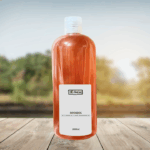
Right here at Haircare Shop—delivered to your door.
Finding the right shampoo and conditioner is personal
At the end of the day, your curls are unique. What works for your friend might not work for you—and that’s okay. The main thing is to listen to your hair. If it feels dry, heavy, or frizzy, it’s asking you to tweak your routine.
Cape Town’s weather will always be a little tough on curls. But with the right sulphate-free shampoo, a hydrating conditioner, and a few smart habits, you can keep your hair soft, defined, and beautiful year-round.
Ready to find your curl match? Check out our full shop here or contact us if you’d like personal help choosing.


